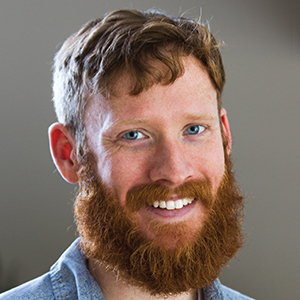Job seekers feel the effects of the pandemic and politics
In mid-March, Deepika Vasudevan was in the middle of negotiating faculty position offers with two public universities in the Northeast. Then campuses across the U.S. shuttered to help stem the COVID-19 pandemic. And then came the hiring freezes.
Just like that, the positions favored by Vasudevan, a sixth-year postdoctoral research fellow at New York University’s Langone Medical Center, disappeared.
“We finalized the start date and the startup package. And the chair of the department emailed me saying that they were waiting to hear from the dean,” she said. “But then, a week later, he emailed me saying, ‘the dean has asked me to withdraw your offer citing financial uncertainties the school of medicine is facing due to COVID-19.’ That was really tough.”
Vasudevan quickly reached out to the department chair at the second university, who shared her concern about the rapid uptick in hiring freezes. On April 2, that university also announced a freeze — leaving Vasudevan with few options once her K-99 funding runs out in September.

She is not alone. Since April, hiring freezes have halted faculty searches and some postdoctoral hiring at more than 400 universities. At the same time, recent restrictions on H-1B visas have constrained recruitment of international postdoctoral fellows.
Vasudevan, who investigates regulation of mRNA translation in ophthalmological disorders, is one of more than 350 members of the “Future PI” Slack channel, where academic researchers discuss job applications, interviews and offers, along with other aspects of preparing to become a principal investigator.
“There are at least a dozen people who are in limbo. They’ve had second visits canceled or soft verbal offers withdrawn. At least from what I read, I seem to be the only unlucky one who had a written offer rescinded,” she said. “A couple of people talk about search chairs really going to bat for them and making sure the offers have been signed even with hiring chills in place. There are also many for whom second visits were canceled due to the search being suspended.”
Uneven thaw
For every aspiring PI frozen out of a faculty search, there are frustrated hiring committee members whose efforts to fill their departments have been derailed.
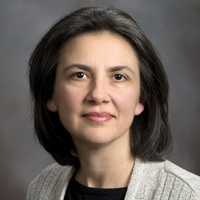
Daniela Cimini is one of them. A professor at Virginia Polytechnic Institute and State University, Cimini thought she had found the perfect candidate back in March for a tenure-track systems biology position at the university.
“We had a great candidate, but the hiring freeze went into effect before we could get a contract signed,” she said. “That freeze will not be lifted for the next recruiting cycle, so it is quite uncertain when or if we will be able to get this candidate.”
However, some universities, such as Oklahoma State, have continued filling faculty positions deemed essential while funds for other positions remain frozen.

Charles Sanny chairs the department of biochemistry and microbiology at the OSU Center for Health Sciences and has been involved in its ongoing search for a new faculty member.
“It’s not like there’s been a whole bunch of recruiting going on throughout the Center for Health Sciences during the COVID-19 crisis. It’s just that we started about a year ago, and the process was allowed to continue and come to a conclusion,” Sanny said. “We had some candidates that actually were able to come to the interviews before the lockdown happened.”
A more recent candidate, he added, had to be interviewed on Zoom.
Despite hiring freezes for faculty positions, many primary investigators still are hiring recent Ph.D. recipients to work in their labs.
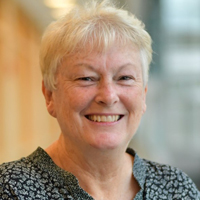
Patricia Phelps, director of professional and career development at the Johns Hopkins School of Medicine, has been tracking how universities have changed their postdoctoral hiring policies in response to the pandemic.
Phelps and her staff conducted a survey of postdoctoral affairs offices and found that 67% of the institutions that responded have granted one-year extensions to their postdoctoral term limits. They also found that many universities have granted exceptions to hiring freezes for PIs who will fund postdoctoral positions with their grants.
“It seems like most institutions are still hiring if the positions are externally funded, which is most of the positions,” she said.
This was the case for Michael Johnson, a bacteriologist at the University of Arizona seeking a postdoctoral fellow for his lab. “I needed to get a waiver to even be able to have the job opening,” Johnson said. “I think there’s a lot that people can do remotely in terms of training, and then we can get them into the laboratory once things are, I guess, back to normal, whenever that might be.”
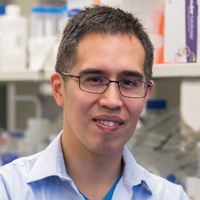
Carlos Castañeda, a biophysicist at Syracuse University, also is seeking two postdoctoral fellows for his lab despite the university’s hiring freeze and distancing requirements in lab settings.
“These positions are supported entirely by my federal grants, and that has been extremely helpful in convincing the university that these are positions that I’m entirely taking care of,” he said. “So, in some ways, the fact that there is a hiring freeze throughout the university hasn’t affected my ability to hire.”
Castañeda is, however, concerned about increasing difficulties in hiring both international and domestic candidates.
“Many strong candidates have been international, and the ability to hire them is definitely a big question mark right now, partially because of the pandemic and partially for other reasons,” he said. “Currently, it is certainly easier to hire domestic than it is to hire international. However, many domestic candidates have had their Ph.D. defenses pushed back due to prolonged lab closures.”
Phelps noted a similar shift in policies at universities that responded to her survey, saying, “The key change I see is the focus on U.S. candidates, which could create a whole separate issue for research.”
Beleaguered budgets
In July, U.S. Immigration and Customs Enforcement announced that international students would have to take some in-person classes in the fall or leave the country, spurring Harvard University and the Massachusetts Institute of Technology immediately to sue the government. As amicus briefs from other universities piled up, the government backed down.
International students are a major source of revenue for both public and private universities, and mounting costs related to COVID-19 are already punishing large public universities, many of which are in states that cannot run budget deficits.
Worse, an analysis provided by Moody’s Investors Services to the Washington Post in 2016 found that the University of Virginia, University of Michigan, Ohio State University, the University of North Carolina at Chapel Hill and the University of Texas system, among many others, had less than one year’s worth of cash in their financial reserves. Earlier this year, millions of dollars from the federal government’s coronavirus relief package, known as the Coronavirus Aid, Relief and Economic Security (CARES) Act, went to universities that were close to closing.
So, as universities are freezing hiring, they’re also slashing other parts of their budgets.
Ohio University, which boasts an on-campus student body of 20,000 undergraduates and an endowment of nearly $600 million, recently announced that it was planning to eliminate 58 nonfaculty staff positions in its College of Arts and Sciences. In May, Ohio Gov. Mark DeWine announced a nearly $800 million cut in state spending, $110 million of which was from college and university funding. And in July, the University of North Carolina Board of Governors told chancellors at all 17 campuses to prepare plans to cut their budgets by up to 50%.
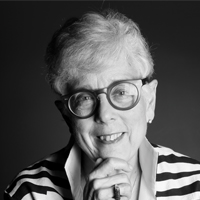
According to Paula Stephan, a labor economist at Georgia State University who focuses on the careers of scientists and the economics of science, that pain is being felt at most public universities and institutions.
“Our state-supported public institutions are taking a huge financial hit because of the pandemic. In my own state, institutions are going to have to take an 11% to 14% cut next year,” she said. “And, if you talk to people and ask how they’re going to cover those, one of them is through canceling positions they were seeking to fill. So I think that says that the market for new hires is definitely not going to be very strong.”
Postdoc prospects

April Rodd, an environmental toxicologist in the fourth year of her postdoctoral fellowship at Brown University, in March began looking at her options for academic jobs in the fall, only to watch faculty searches get canceled.
“It worked out. I wouldn’t have gotten maternity leave if I had ended up taking any of those positions. But it’s put me in a nervous position,” said Rodd, who recently became pregnant after years of trying to start her family. While Rodd and her PI had discussed the possibility of her staying in her lab until the beginning of the 2021 academic year, limited resources and funding rendered that untenable.
“No matter what, I’m going to lose that window of time between the spring and the beginning of the next academic year,” she said. “And I just don’t know what the fall is going to look like. I don’t think any of us do, including the universities.”
(Read April Rodd’s essay about her postdoc experience.)
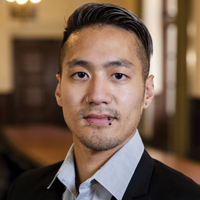
Ryo Higuchi–Sanabria, a fifth-year postdoctoral fellow at the University of California, Berkeley, and his peers are also dismayed.
“Usually things would start to open up now. That was my experience last year,” he said. Last fall, Higuchi–Sanabria applied and interviewed for tenure-track positions at universities in the greater Bay Area, more or less as practice, and then he started applying again in earnest this summer.
“There’s absolutely nothing open. And some universities are saying that they’re planning to open applications in September if they didn’t fill positions from last year.”
Because many of the postdocs who would have filled those tenure-track positions are still on the job market, Higuchi–Sanabria is worried that the pool of applicants will only become more competitive next year.
“Essentially all the people who couldn’t get a job from the 2020/2021 cycle because of the hiring freeze will be applying in the 2021/2022 cycle,” he said. “A lot of my colleagues who were planning to apply are saying they’re going to wait till next year, or they’re just going to start applying for industry now.”
Industry’s appeal
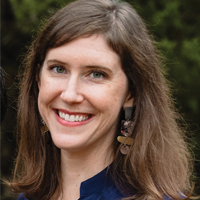
Ashley Frakes, a research fellow in the same lab as Higuchi–Sanabria whose research involves how astrocytes and microglia regulate aging, is considering positions both within and outside of the academy.
“I’ve always thought that industry sounded appealing; it’s somewhere you can still do research but also have the infrastructure to contribute to a pipeline to impact a disease,” she said.
According to Kerry Boehner, an executive recruiter at KOB Solutions who has been recruiting scientists for the pharmaceutical and biotech industries for two decades, certain industry sectors have remained mostly unfazed by the economic downturn.
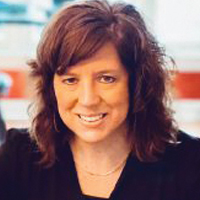
“When the recession hit in 2008, things definitely slowed down,” Boehner said. “So, when the pandemic hit, I expected the same, because everything else slowed down, so why wouldn’t biotech and pharma? And, the exact opposite has happened. It really depends on the kind of research that someone was doing in their postdoc or in their Ph.D.”
According to Beth Keeler, associate vice president of global talent acquisition at Merck, the pharma giant has not seen a notable increase or decrease in the number of applicants for positions that require postdoctoral or other levels of experience.
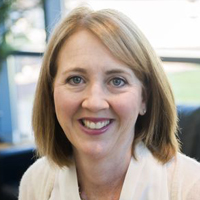
“I think it’s been steady and it’s been consistent, and if you looked at it year over year, you would not see this year standing out as being all that different,” Keeler said. “I think in pharmaceuticals, you always have a little bit of a shift, whether it’s to a therapeutic area or toward particular functional expertise, like oncology or vaccines. But there has not been a dramatic uptick or a downtick in terms of volume … when you look at our overall hiring volume for this year versus last year, it’s almost exactly the same.”
For scientists like Frakes, whose research is readily translatable to industry, that means a path out of academia may be available. But for postdocs like Rodd and Vasudevan, who hope for careers as independent investigators, the future is less clear.
While Vasudevan waits for the freezes at the universities she’d been negotiating with to thaw, her PI, Hyung Don Ryoo, is piecing together funding so she can continue working in his lab.
“Moving forward in the fall, I think I’m going to be doing all the preliminary experiments that I would have been doing in my new lab, except at my postdoc lab,” Vasudevan said. “That’s kind of the thread to my sanity. I think it also gives me a little bit of perspective that New York has just taken such a big hit … I still mope from time to time, but I think the fact that so many New Yorkers have it worse really gives me pause to say, ‘Well, I guess it could be worse.’”
A long arc
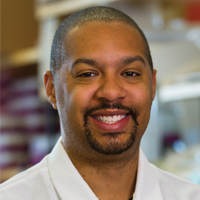
Some universities are making changes in policies to reflect how disruptions from COVID-19 have affected researchers’ productivity.
According to Johnson, the University of Arizona has allowed professors who were up for tenure, including him, to delay turning in their packets for one year. But he’s worried about how hiring committees will evaluate the overflowing pool of applicants for tenure-track positions next year, some of whom had less access to their labs and research materials than their peers.
“Hopefully they will be erring on the side of grace, saying, ‘We know you didn’t get a chance to do this (experiment) because of COVID, so we can’t in good faith or good conscience hold that against you,’” he said. “But, at the same time, here’s this other person that might have been working throughout this entire thing and got some great results. How do you treat that?”
Enjoy reading ASBMB Today?
Become a member to receive the print edition four times a year and the digital edition monthly.
Learn moreFeatured jobs
from the ASBMB career center
Get the latest from ASBMB Today
Enter your email address, and we’ll send you a weekly email with recent articles, interviews and more.
Latest in Careers
Careers highlights or most popular articles

From humble beginnings to unlocking lysosomal secrets
Monther Abu–Remaileh will receive the ASBMB’s 2026 Walter A. Shaw Young Investigator Award in Lipid Research at the ASBMB Annual Meeting, March 7-10 in Washington, D.C.

Chemistry meets biology to thwart parasites
Margaret Phillips will receive the Alice and C. C. Wang Award in Molecular Parasitology at the ASBMB Annual Meeting, March 7-10 in Washington, D.C.

Decoding how bacteria flip host’s molecular switches
Kim Orth will receive the Earl and Thressa Stadtman Distinguished Scientists Award at the ASBMB Annual Meeting, March 7–10, just outside of Washington, D.C.

Defining JNKs: Targets for drug discovery
Roger Davis will receive the Bert and Natalie Vallee Award in Biomedical Science at the ASBMB Annual Meeting, March 7–10, just outside of Washington, D.C.

Upcoming opportunities
No matter where you are in your career and what future path you aspire to, everyone needs leadership skills. Join ASBMB for practical strategies for building and practicing leadership skills.

Close out ASBMB 2026 with a bang
The closing reception of the 2026 ASBMB Annual Meeting will be held at the Torpedo Factory Art Center in Alexandra, Virginia.

